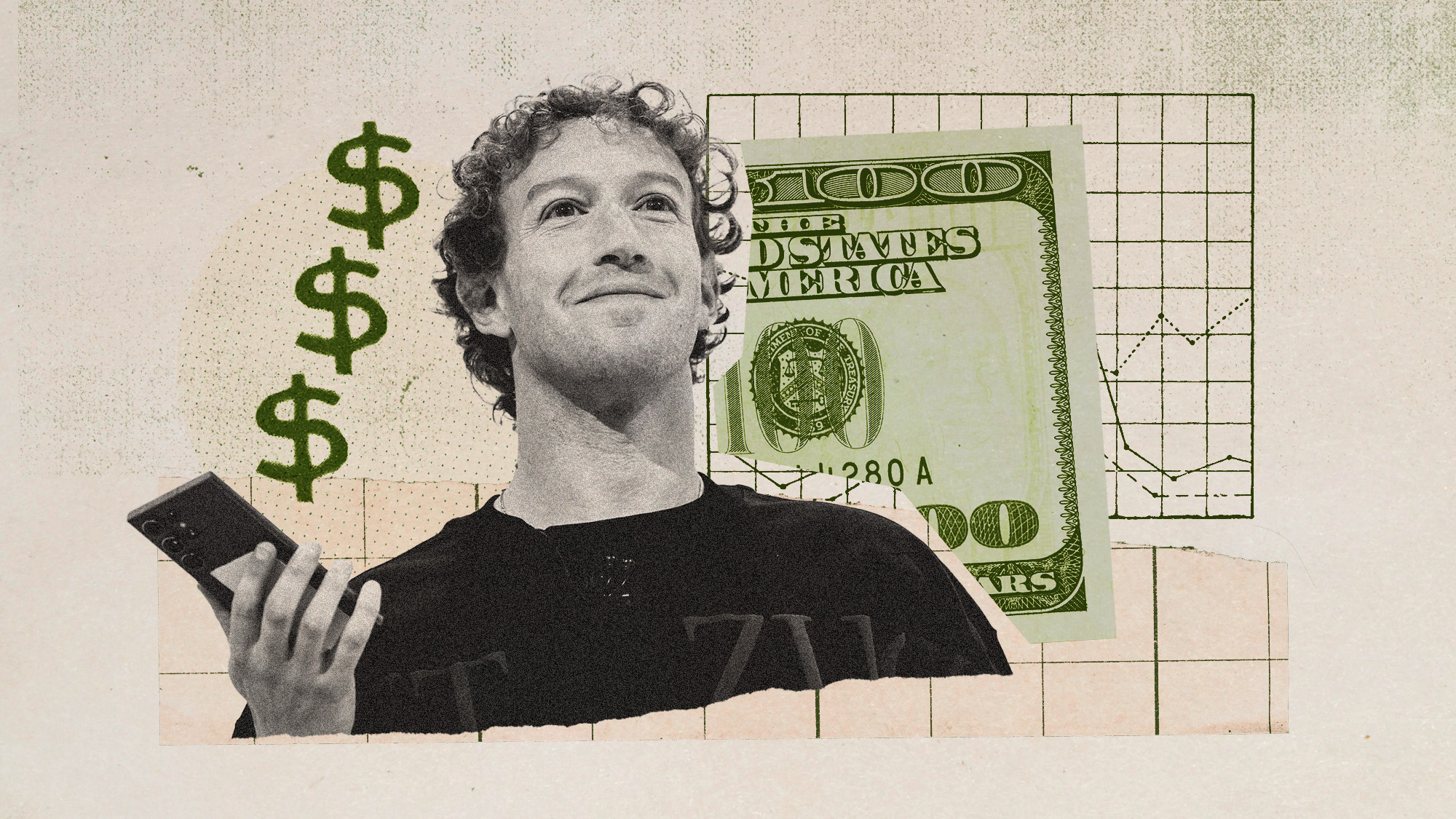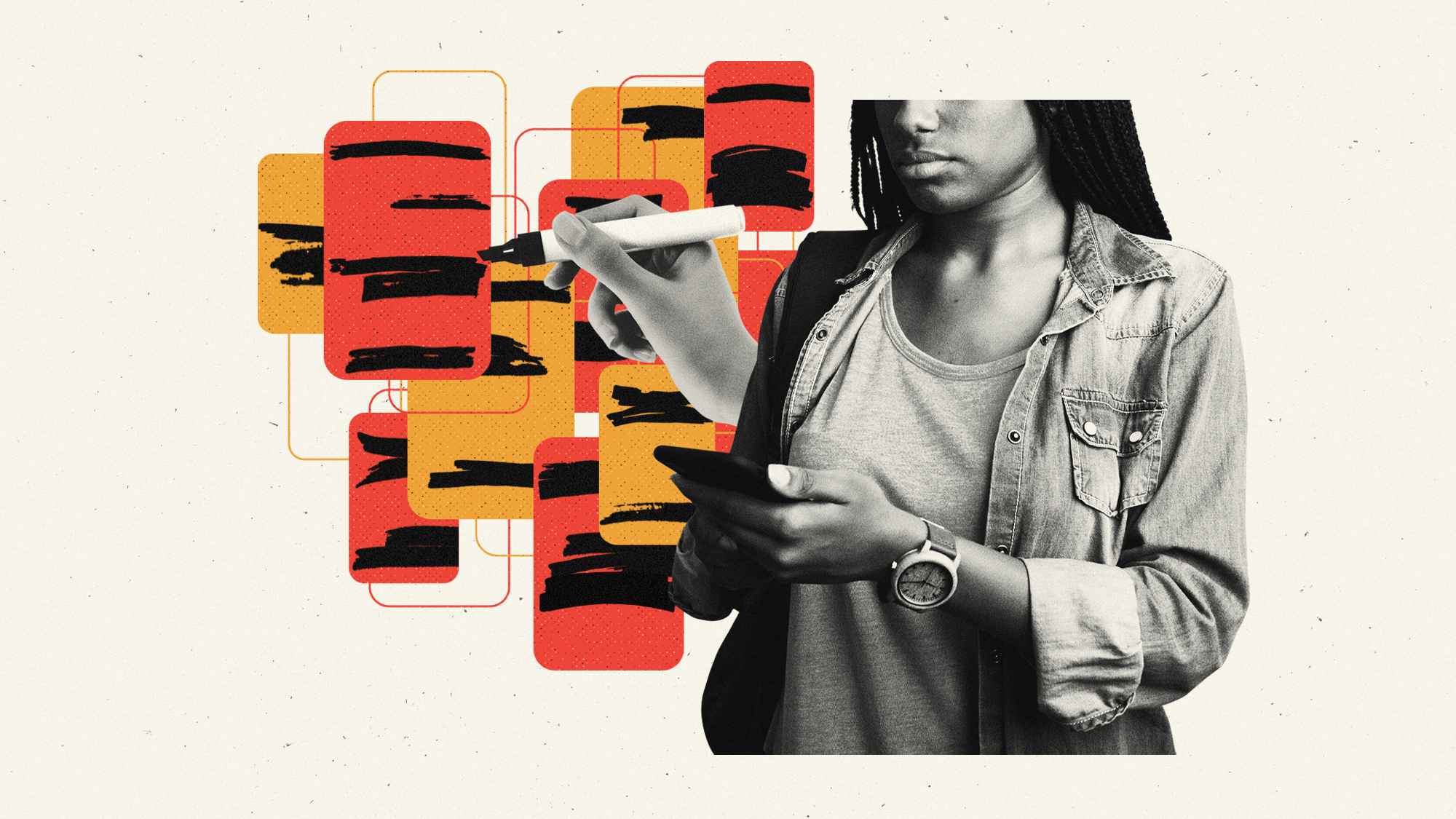OkCupid: five things it learned about love by tricking its users
OkCupid dating site admits to removing people's photos and lying about how well matched they are

A free daily email with the biggest news stories of the day – and the best features from TheWeek.com
You are now subscribed
Your newsletter sign-up was successful
Popular dating website OkCupid has admitted to carrying out social experiments on its users without their knowledge. It comes just a few weeks after Facebook came under fire for investigating whether 700,000 oblivious users could "infect" one another other with their mood.
In a blog post, OkCupid co-founder Christian Rudder admits to removing people's photographs and lying about how well matched they are to other users. "Guess what, everybody: if you use the internet, you're the subject of hundreds of experiments at any given time, on every site. That's how websites work," he declares.
Here's what OkCupid found:
The Week
Escape your echo chamber. Get the facts behind the news, plus analysis from multiple perspectives.

Sign up for The Week's Free Newsletters
From our morning news briefing to a weekly Good News Newsletter, get the best of The Week delivered directly to your inbox.
From our morning news briefing to a weekly Good News Newsletter, get the best of The Week delivered directly to your inbox.
Picture is everything, text means little
At one time, OkCupid allowed people to rate each other on two separate scales for "personality" and "looks". But it found that users saw the two qualities as essentially the same thing. For example, one woman with model looks was given top votes for her personality despite her profile containing no text at all. Profile text is used to judge a person less than ten per cent of the time, says Rudder. "Your picture is worth that fabled thousand words, but your actual words are worth... almost nothing," he adds.
People are less shallow in real-life
On 15 January 2013, OkCupid launched an app that set people up on blind dates. It found that once people were on their blind date in real-life, they had a good time regardless of the attractiveness of their partner. Yet the exact same users were more judgmental online. When they were using the regular OkCupid site with photographs, they were much more likely to respond to a message the more attractive the sender. "Basically, people are exactly as shallow as their technology allows them to be," says Rudder.
A free daily email with the biggest news stories of the day – and the best features from TheWeek.com
Removing pictures led to deeper conversations
To promote the launch of the blind date app, all the pictures from the regular OkCupid app were removed for a "Love is Blind Day". During that time, the site found that people responded to first messages 44 per cent more often than normal; conversations went "deeper"; and contact details were exchanged more quickly. But when the photos were restored, 2,200 conversations that had started "blind" melted away. "It was like we'd turned on the bright lights at the bar at midnight," says Rudder.
Even a false compatibility will prompt a first message...
OkCupid calculates its users "match percentage" with other people on the site, based on message success, conversation length and contact information shared. In one experiment, the site took people with a bad match, of 30 per cent, and told them they were exceptionally good for each other, by displaying a 90 per cent match. Rudder says that "not surprisingly, the users sent more first messages when we said they were compatible".
...But the odds of it turning into a 'real conversation' are lower
Rudder admits that OkCupid subsequently worried that its matching algorithm might be "garbage" and that it was only the power of suggestion that brings people together. So they tested the system the other way around, telling people with a 90 per cent match that they were not compatible. Ultimately, they found that the odds of striking up a "real conversation" – four messages or more – were higher for couples who were actually compatible and told they were compatible than those who were not compatible but who believed they were.
-
 The environmental cost of GLP-1s
The environmental cost of GLP-1sThe explainer Producing the drugs is a dirty process
-
 Greenland’s capital becomes ground zero for the country’s diplomatic straits
Greenland’s capital becomes ground zero for the country’s diplomatic straitsIN THE SPOTLIGHT A flurry of new consular activity in Nuuk shows how important Greenland has become to Europeans’ anxiety about American imperialism
-
 ‘This is something that happens all too often’
‘This is something that happens all too often’Instant Opinion Opinion, comment and editorials of the day
-
 Is social media over?
Is social media over?Today’s Big Question We may look back on 2025 as the moment social media jumped the shark
-
 Social media: How 'content' replaced friendship
Social media: How 'content' replaced friendshipFeature Facebook has shifted from connecting with friends to competing with entertainment companies
-
 Meta on trial: What will become of Mark Zuckerberg's social media empire?
Meta on trial: What will become of Mark Zuckerberg's social media empire?Today's Big Question Despite the CEO's attempt to ingratiate himself with Trump, Meta is on trial, accused by the U.S. government of breaking antitrust law
-
 What does an ex-executive's new memoir reveal about Meta's free speech pivot?
What does an ex-executive's new memoir reveal about Meta's free speech pivot?Today's Big Question 'Careless People' says Facebook was ready to do China censorship
-
 What's Mark Zuckerberg's net worth?
What's Mark Zuckerberg's net worth?In Depth The Meta magnate's products are a part of billions of lives
-
 Is the AI bubble deflating?
Is the AI bubble deflating?Today's Big Question Growing skepticism and high costs prompt reconsideration
-
 How social media is limiting political content
How social media is limiting political contentThe Explainer Critics say Meta's 'extraordinary move' to have less politics in users' feeds could be 'actively muzzling civic action'
-
 Twitter's year of Elon Musk: what happens next?
Twitter's year of Elon Musk: what happens next?In the Spotlight 'Your platform is dying', says one commentator, but new CEO is aiming for profitability next year